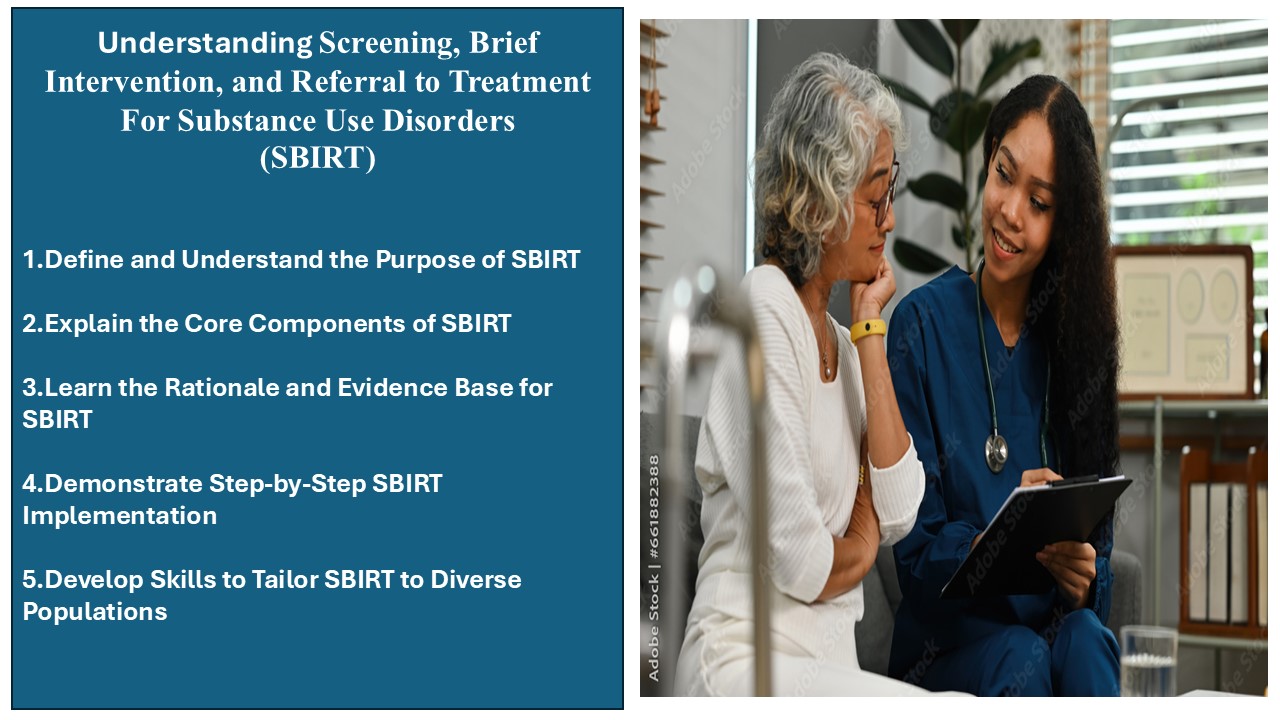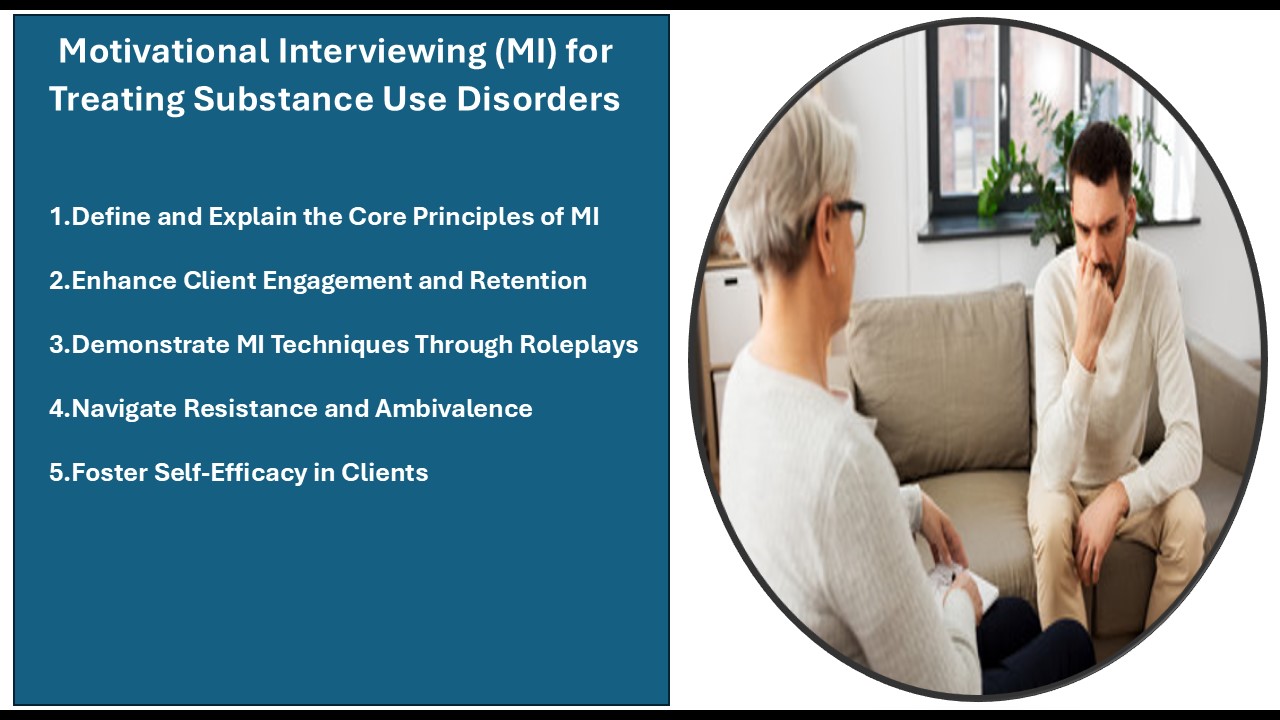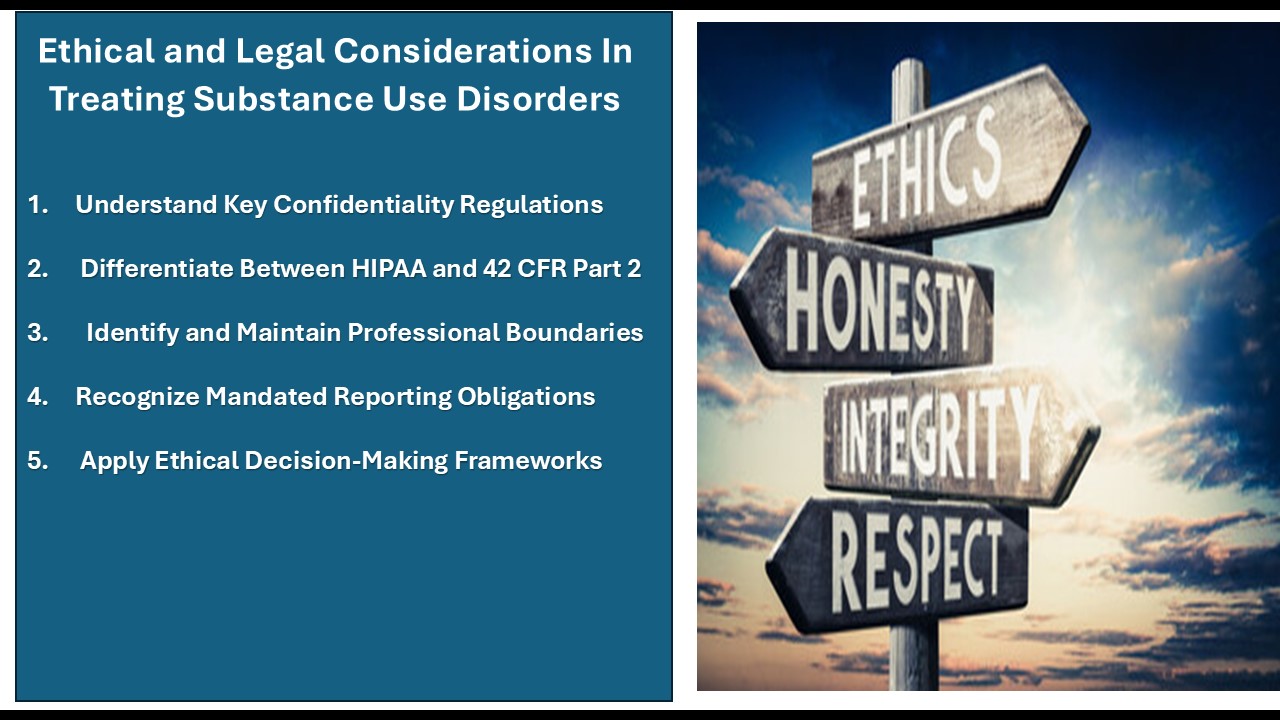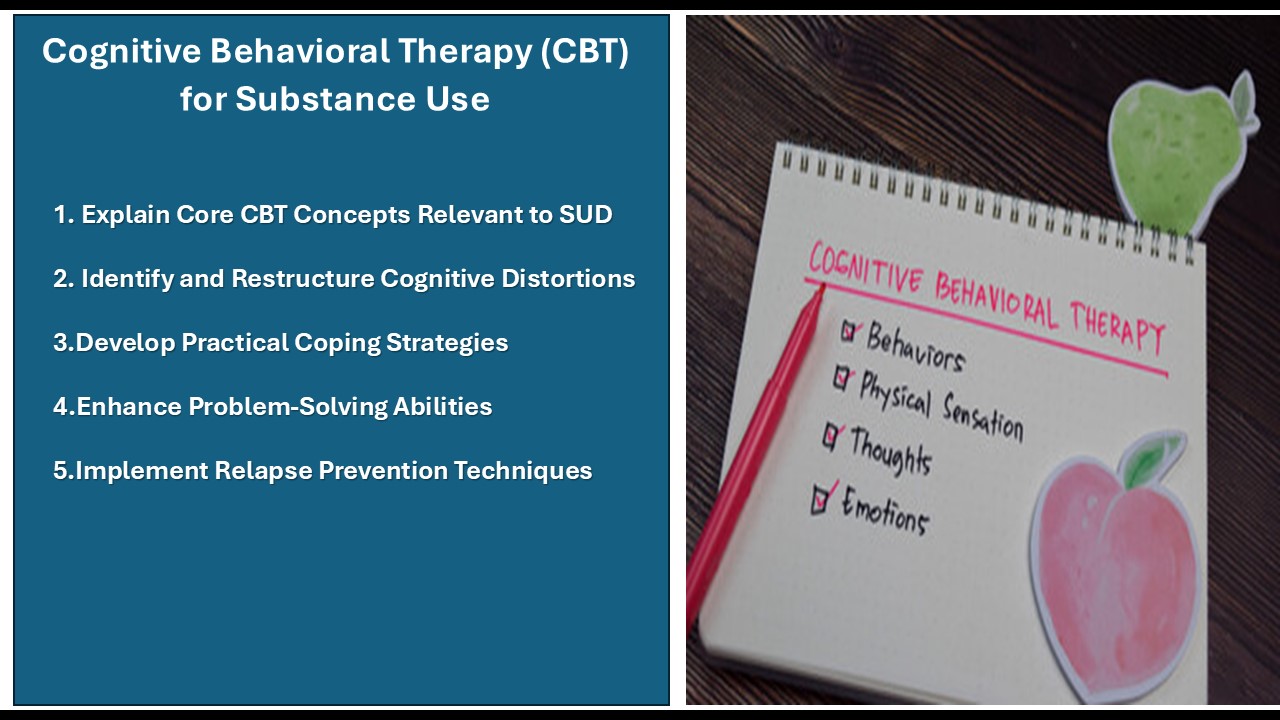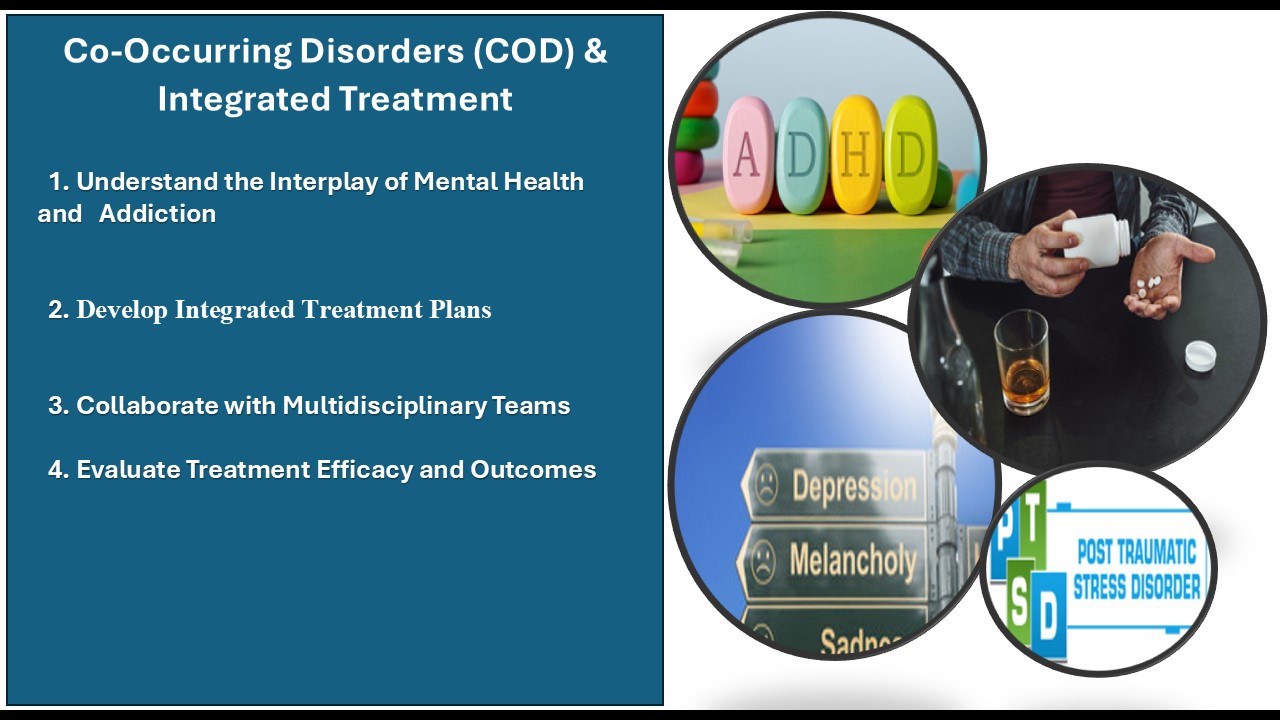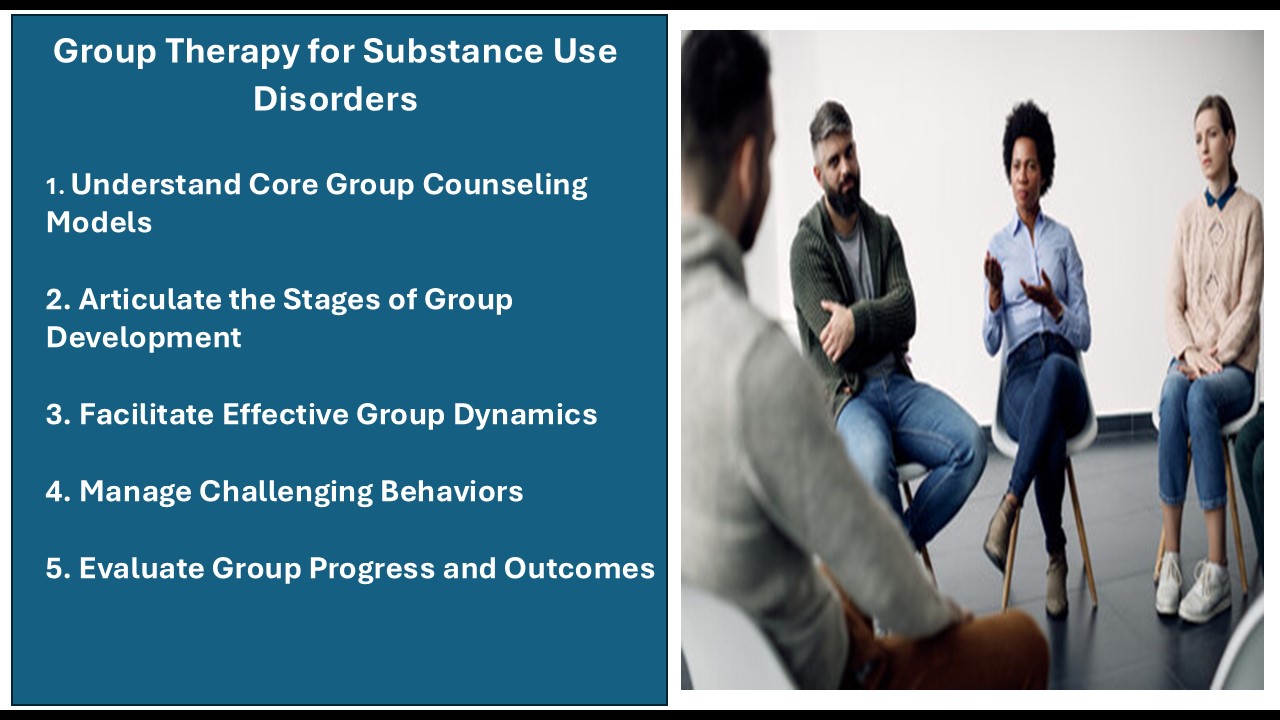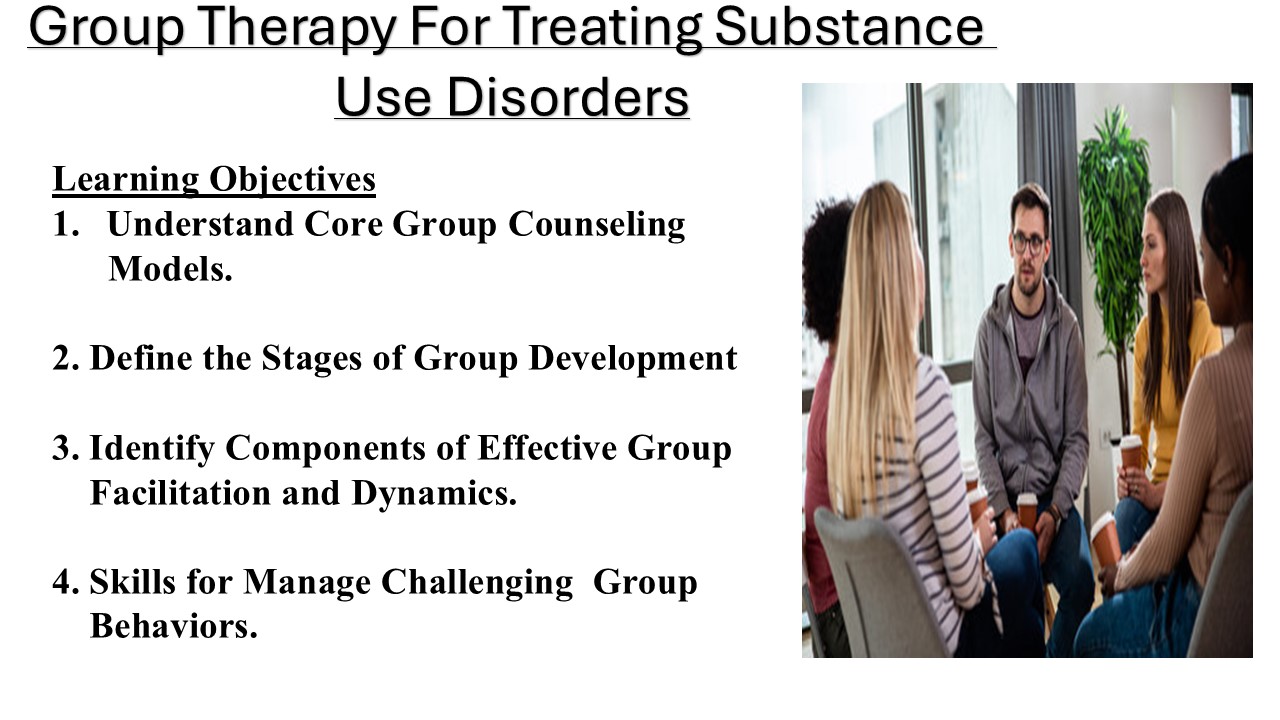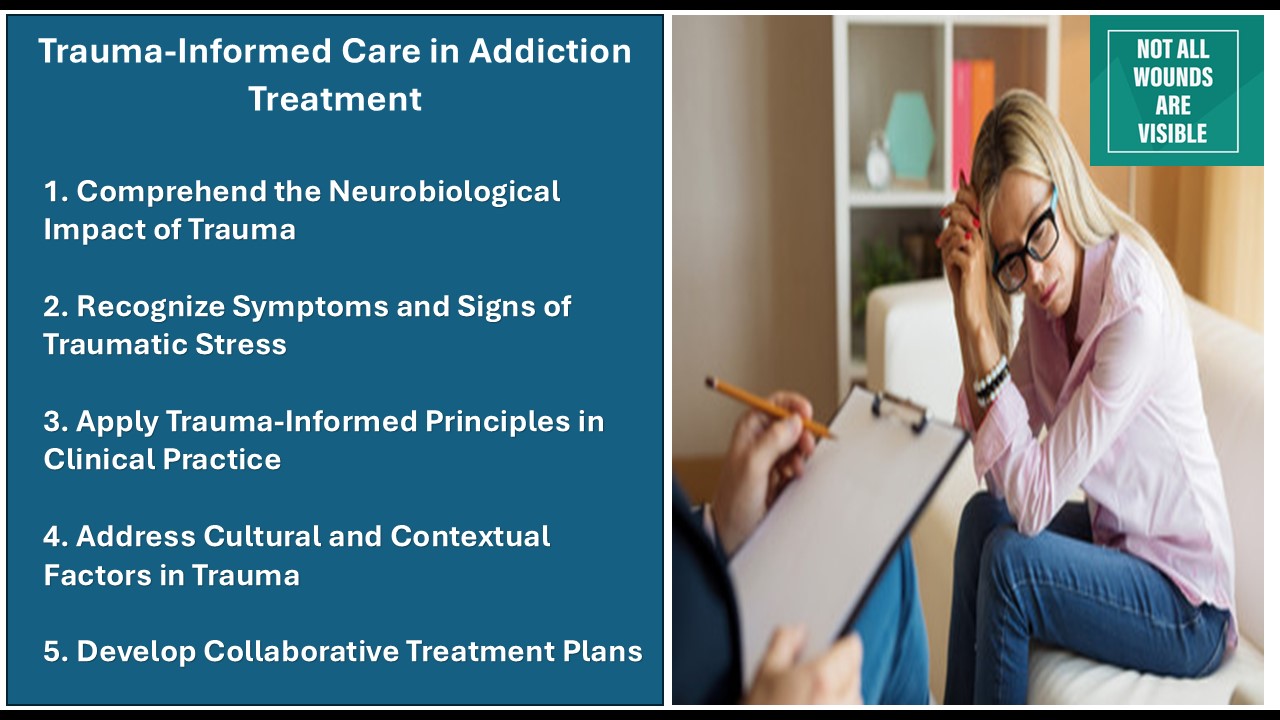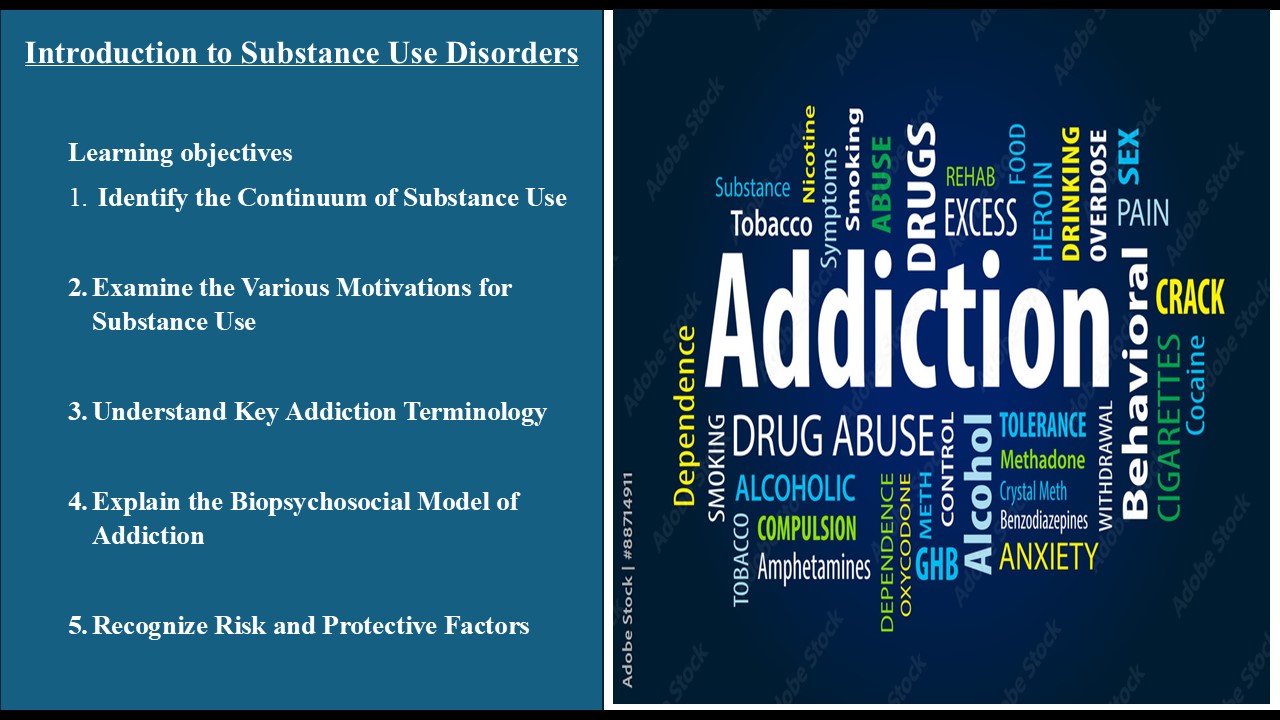
Introduction to Substance Use Disorders This training provides a broad overview of how substance use progresses from experimental or recreational stages to severe dependence, offering counselors insight into key terms such as tolerance, withdrawal, and dependence. Participants will explore the biopsychosocial model of addiction, which examines biological, psychological, and social factors contributing to substance use. By completing this course, counselors can expect to gain a strong foundational understanding of addiction, learn common terminology,
Click Here To Access Training Page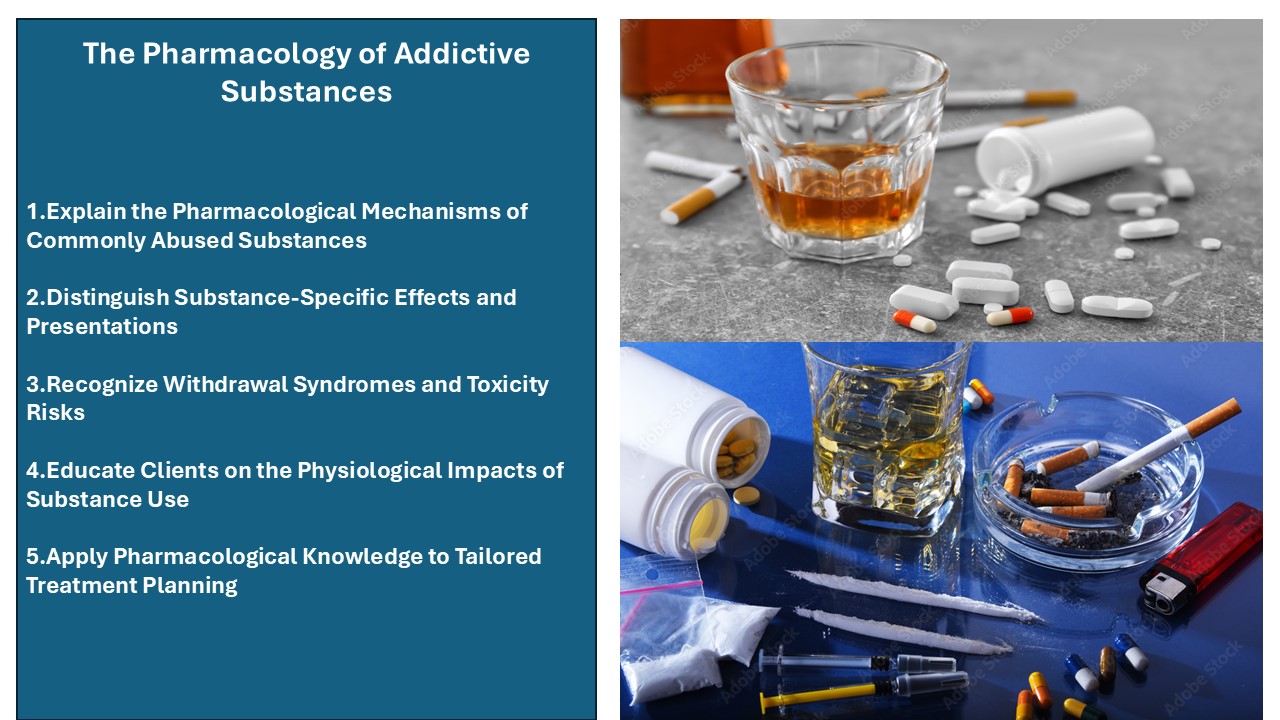
In this training, counselors learn about the most commonly misused substances, including alcohol, opioids, stimulants, and cannabis—and the neurochemical processes that underlie their effects. Discussions include withdrawal syndromes, toxicity risks, and how these substances interact with the brain and body. Counselors will emerge with an enhanced ability to recognize substance specific presentations, educate clients about the physiological impact of these substances, and guide more informed treatment planning.
Click Here To Access Training Page